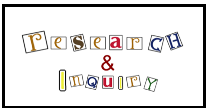|
|
||
|
Enduring
Understanding |
||
|
|
||
|
Treasures Board Posters |
||
|
Week
1: The Tiny Seeds |
Teacher Resources |
Student Resources |
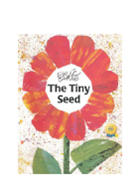 Word Study |
(Vocabulary pictures, sentences and examples as well as differentiated vocabulary worksheets, bookmarks and dominoes) Day 1 Day 3 Day 4 Oral Vocabulary Cards - Week 1 |
(Student Station) (Student Station) (Student Station) |
|
Enduring Understanding:
Good readers use details and prior knowledge to draw conclusions. Essential Question: What is the main idea of the selection? Explain how it is different from the topic.
|
This video is a visual aide to help introduce the life cycle of a plant. Students will be able to witness the Sunflower plant as it progresses through each stage in the life cycle. (2 mins.) Note: If the link does not work, login to aacps.discoveryeducation.com Drawing Conclusions (Jeopardy Game) |
Drawing
Conclusions (Student Station – Beyond) (Student Station) |
|
Week
2: The Ugly Vegetables |
Teacher Resources |
Student Resources |
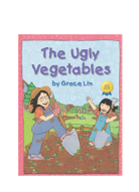 Word Study |
(Vocabulary pictures, sentences and examples as well as differentiated vocabulary worksheets, bookmarks and dominoes) Day 1 Day 4 Day 5 Oral Vocabulary Cards - Week 2 |
(Student Station)
(Student Station) Word Riddles (Student Station - Beyond) Students will create words that will complete a sentence that contains a riddle in an interactive format. |
|
Enduring Understanding: Good
readers summarize the events of a story in sequence.
Essential Question:Retell the events of the story in sequence. What do you think will happen next in the story? |
This video shows the process of setting up and keeping a garden. The video will provide students with background knowledge about what a plant needs in order to grow. (8 mins.) Note: If the link does not work, login to aacps.discoveryeducation.com This video shows the stages of the water cycle and what happens in each stage. (6 mins.) Note: If the link does not work, login to aacps.discoveryeducation.com |
Somebody-Wanted-But-So-Then (Student Station) |
|
Week
3: Meet the Super Croc |
Teacher Resources |
Student Resources |
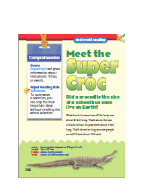 Word Study |
(Vocabulary pictures, sentences and examples as well as differentiated vocabulary worksheets, bookmarks and dominoes) LeVar visits the Dinosaur National Monument where dinosaur fossils are removed from the ground. Linda, a ranger, and Toby, a paleontologist, tell about dinosaur fossils and show LeVar what work they do at the park. (Reading Rainbow - 7:44 minutes) Note: If the link does not work, login to aacps.discoveryeducation.com This is a quick introduction to fossils and what fossil hunters do in order to find them. (1 min.) Note: If the link does not work, login to aacps.discoveryeducation.com Day 1 Day 2 Day 4 Day 5 Oral Vocabulary Cards - Week 3 |
Weekly Vocabulary Practice (Student Station)
(Student Station)
(student station) |
|
Enduring Understanding: Good readers summarize the main idea and important details to help them understand and remember important information. Essential Question: Summarize the details in the selection. What is the main idea? |
This is a short video depicting the life cycle of a butterfly. The video shows each stage in the life cycle and is a visual aide in describing how each stage is different. (6 mins.) Note: If the link does not work, login to aacps.discoveryeducation.com This video is a short video that can demonstrate the difference between a duck and a duckling. Teachers can use this video to compare the duck to Marcel from the story. Teachers will want to use the 7 minute mark to show students the difference between the mother duck and the ducklings. (partial video - watch from 7:00 to the end) Note: If the link does not work, login to aacps.discoveryeducation.com |
Super Croc: Beginning/Middle/End (Student Station)
This is a collection of links in a Smart Notebook file of research information. Students can use this file to choose a dinosaur or prehistoric animal and gather research information using PebbleGo and World Book for Kids online. Smithsonian - Dinosaur Dig This is a link to the Smithsonian National Museum of Natural History. Students can launch an interactive game where they can go on a "dinosaur dig" for fossils. Students will use a variety of interactive tools in order to uncover a fossil of a dinosaur and transport it to a museum. Smithsonian - Dinosaur Tour This is a link to the Smithsonian National Museum of Natural History. Students can take a tour of the museum and visit various dinosaur fossils, etc. |
|
Week
4: Farfallina
and Marcel |
Teacher Resources |
Student Resources |
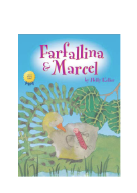 Word Study |
(Vocabulary pictures, sentences and examples as well as differentiated vocabulary worksheets, bookmarks and dominoes) Oral Vocabulary Cards - Week 4 |
Weekly Vocabulary Practice (Student Station) (Student Station) (Student Station) Contractions Practice (Student Station) |
|
Enduring Understanding: Good readers use text clues from the author alont with their prior knowledge to make inferences. Essential Question: What inferences can you make about the characters in the story and their traits, motivations, and feelings? |
Making
Inference Activity Scroll down to Comprehension. Click Part Three. Go to pages 72-80 of pdf for Incredible Inferences. |
(Student Station) |
|
Week
5:
Nutik,
The Wolf Pup |
Teacher Resources |
Student Resources |
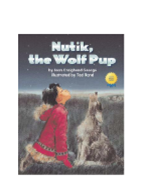 Word Study |
(Vocabulary pictures, sentences and examples as well as differentiated vocabulary worksheets, bookmarks and dominoes) Word Study Review LeVar introduces Susan Bucher, who lives in the wilderness of Alaska where she trains sled dogs to mush, or race, in the Iditarod. (Reading Rainbow - 5 minutes) Note: If the link does not work, login to aacps.discoveryeducation.com Day 1 Day 2 Oral Vocabulary Cards - Week 5 |
(Student Station) (Student Station) |
|
Enduring Understanding:Good
readers use text clues
from the author along with their prior knowledge to make inferences.
Essential Question:What inferences can you make abut the characters in the story and their traits, motivations, and feelings? |
Making Inferences Making Inferences Based On Characters |
Making Inferences (Challenge Student Station) |
|
Curriculum Links |
Resources |
|
|
|
|
|
|
|
|
|
|
Standards |
Resources |
|
Common Core Standard: RI 4 Determine the meaning of words and phrases in a text relevant to a grade 2 topic or subject area.
|
|
|
Common Core Standard: SL 2 Recound or describe key ideas or details from text read aloud or information presented orally or through other media.
|
Videos: Steps to Set Up and Grow a Garden Water Cycle Let's Dig Up Dinosaurs Fossils and Fossil Hunters Butterfly Life Cycle Ducks and Ducklings-How they are Different Dog Sled Racing |
|
Common Core Standard: RL 2.7 Use information gained from the illustrations and words in a print or digital text to demonstrate understanding of its characters, setting, or plot. RL 2.10 By the end of the year, read and comprehend literature, including stories and poetry, in the grades 2–3 text complexity band proficiently, with scaffolding as needed at the high end of the range.
|
|
|
Common Core Standard:
|
Smithsonian Dinosaur Dig |
|
Common Core Standard:
RI 2.7
Explain how specific images (e.g., a diagram showing how a machine
works) contribute to and clarify a text.
|
Smithsonian Dinosaur Tour |
|
Common Core Standard: L 2.4.a Use sentence-level context as a clue to the meaning of a word or phrase.
|
(Student
Station)
|
|
Common Core Standard:
RF 2.3.c
Decode
regularly spelled two-syllable words with long vowels. |
|
|
Common Core Standard:
L 2.4.a Use sentence-level context as a
clue to the meaning of a word or phrase.
|
|
|
Common Core Standard:
|
Inference Riddle Game
Making Inferences Videos
Watermelon Inferences
Inference Riddles
Making Inferences (Challenge)
Making Inferences
Making Inferences Based on Characters |
|
Common Core Standard: RL 2.5 Describe the overall structure of a story, including describing how the beginning introduces the story and the ending concludes the action.
|
The Ugly Vegetables Super Croc: Beginning/Middle/End |
August 2015





